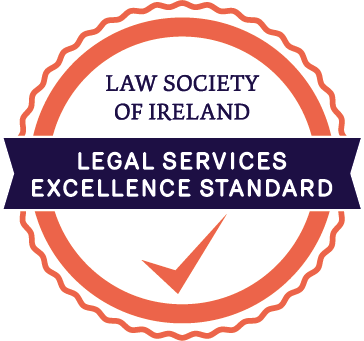Why Consider an EPA?
When someone in Ireland can’t make decisions for themselves due to a condition like dementia, their belongings and property generally can’t be accessed or used by others unless these are owned jointly or if a chosen person holds a Enduring Power of Attorney (EPA) to manage them. An EPA not only covers financial matters but also empowers the chosen Attorney to make decisions regarding the personal care of the individual (referred to as the Donor) when they’re unable to do so themselves. These decisions can range from determining the Donor’s living arrangements to who they interact with and the types of rehabilitation they receive. However, the Donor has the liberty to limit or specify which decisions the Attorney can or cannot make.
Anyone chosen by the Donor, including family members or a spouse, can be appointed as the Attorney. It’s possible to appoint multiple Attorneys and the Donor can specify that these Attorneys consult with a named individual before making any decisions on their behalf.
To shield the Donor from potential misuse of this power, there are several legal checks in place. For an EPA to be set up, it’s mandatory to consult with a solicitor and a doctor. The Donor, through their solicitor, must notify at least two people about the EPA as soon as possible. These individuals have the right to raise objections if they believe the power is being activated prematurely. An EPA only becomes active following a detailed process, which includes obtaining a medical report to confirm the Donor’s incapacity to make their own decisions.
For instance, if the person needs an EPA, they’d first visit their GP for an evaluation to confirm the mental capacity to understand and establish an EPA.
This medical confirmation is also necessary when the EPA is signed, to ensure the person comprehends its significance. If the GP concludes the lack of understanding, sadly, it’s too late for an EPA, and the person might need to be made a Ward of Court for his assets to be managed on his behalf. If the property is jointly owned the second person could manage it , assuming they are mentally fit.
An Enduring Power of Attorney
An enduring power of attorney (EPA) comes into play when you need to navigate life’s uncertain moments.
In the Republic of Ireland, an EPA is a bit like having a trusted mate who can take the wheel if you ever find yourself unable to make important decisions due to health reasons. It’s a legal document that allows you to appoint someone you trust—let’s call them your “navigational buddy”—to make decisions on your behalf if you’re ever incapacitated.
Why Consider an EPA?
Life is full of unexpected twists and turns. An EPA is your assurance that, should the tides turn and you’re unable to make decisions about your finances, health, or welfare, someone you trust is at the helm, ensuring your journey follows the course you’d want.
Choosing Your Attorney
Selecting someone to act as your attorney is no small decision. This person will potentially make significant choices about your life, so it’s essential to pick someone you trust implicitly. They should understand your values and wishes, ensuring that even if you can’t speak for yourself, your voice will still be heard.
Setting the Course:
Creating an EPA in Ireland involves a few critical steps to ensure everything is shipshape:
- The Legal Framework: First, you need to complete the EPA document, which sets out the powers you’re giving to your attorney. This can range from making medical decisions to handling your finances.
- Professional Guidance: You’ll need a solicitor to ensure the EPA is correctly set up. They’re like the cartographers of old, making sure your map is accurate and leads you where you want to go.
- Healthcare Captain: A doctor must certify that you understand the implications of setting up an EPA, ensuring you are establishing it correctly.
- Safe Harbours: Before the EPA can take effect, it must be registered with the Office of the Wards of Court, ensuring there’s a record of your navigational attorney and that they can only take control if you’re unable to steer your ship.
As with all legal issues getting the correct legal advice is essential.


